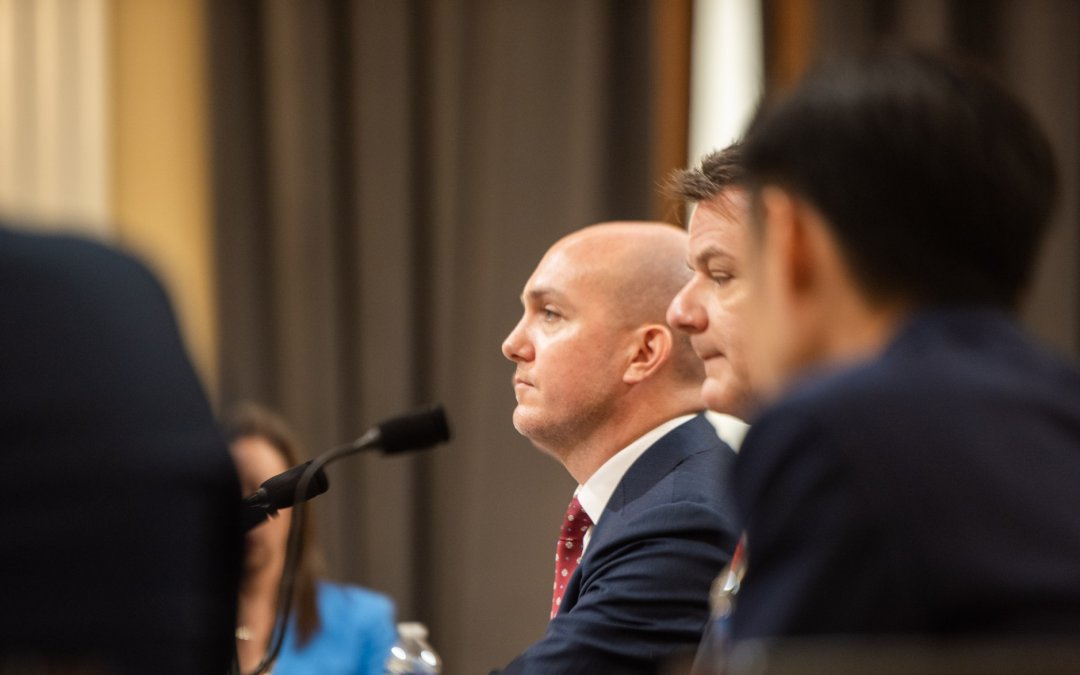WASHINGTON — Lawmakers reached a consensus that Congress needs to act to prevent China’s dominance in rare earth mineral production over American companies at a House Select Committee on China hearing on Wednesday.
Rare earth minerals are essential to various industries including magnet production, automotive and consumer electronic manufacturing. They also are vital to the defense industry, including the manufacturing of F-35 jets.
“There are many more [rare earth minerals] that are critical to American manufacturing, national security and our economy. Without them, our society would crumble,” Committee Chairman Rep. John Moolenaar (R-Mich.) said. “Bringing mining value chains back to the United States will take time and require concerted effort from Congress and industry. Without a permanent signal from Congress, businesses will not invest, and China’s advantage will grow.”
Ranking Member of the Committee Rep. Raja Krishnamoorthi (D-Ill.) began his opening remarks with a video clip from the cartoon Charlie Brown, where the character Lucy holds a football and moves it away at the last second, causing Charlie Brown to fall on his face.
Krishnamoorthi said that it is a metaphor for the United States continually being tricked by China.
“The CCP (Chinese Communist Party) is running the same old economic playbook in different industries, and we’re falling for it again and again. Here’s the playbook. First, the CCP makes much more stuff than their domestic market requires. Second, they export the excess stuff below their cost,” Krishnamoorthi said. “By doing this, they pull the rug out from under non-Chinese companies trying to compete, and then third, once the CCP has killed the competition, they weaponize their monopoly for coercive purposes.”
Three officials from American mineral producers and magnet manufacturers served as witnesses at the hearing. MP Materials Executive Vice President of Corporate Affairs Matthew Sloustcher emphasized the importance of the global rare earth minerals industry despite its relatively small size but warned of letting China have too much influence.
“It’s tens of billions of dollars, but there’s trillions [of dollars] of economic activity downstream that it impacts, and that’s why this issue just has to be taken off the table,” Sloustcher said.
Lawmakers from both parties shared examples of the impact that predatory pricing of rare earth minerals has on their own constituents.
“Factories in my district face unstable prices for the parts they need. Auto suppliers can’t get the magnets required for electric motors. Steel and chemical producers see costs jump overnight, and workers, many of them union members who keep our district strong, end up facing uncertainty they didn’t create,” Rep. Shontel Brown (D-Ohio) said.
“[Lithium] is a key critical mineral that the U.S. must invest in and that we will see dividends if we properly do,” Rep. Nathaniel Moran (R-Texas) said. “East Texas is at the forefront of that… with companies nearing production in that area.”
Rep. Haley Stevens (D-Mich.), who represents the metro Detroit area, said policymakers recognized years ago that the United States is dependent on China for critical minerals and microchips that are used in the automotive industry. She said she is drafting legislation “to direct loan guarantees, tax credits, create an R&D (research and development) center of excellence” to assist American mineral companies.
“I continue also to join for bipartisan solutions, for a way forward for American manufacturing and our supply chain to beat China,” Stevens said.
Most of the committee members signaled the need for some sort of legislation supporting American companies that produce and use rare earth minerals. Rep. Dusty Johnson (R-S.D.) raised concerns about relying too heavily on government funded support and was more inclined to leave solutions to private companies on the open market.
Sloustcher disagreed, arguing that China is manipulating the market in their favor.
“Free-market capitalism is the engine of our economy… but I think the reality is today, we are not operating in a free market. China is both a monopoly and a non-market economy,” Sloustcher responded.

